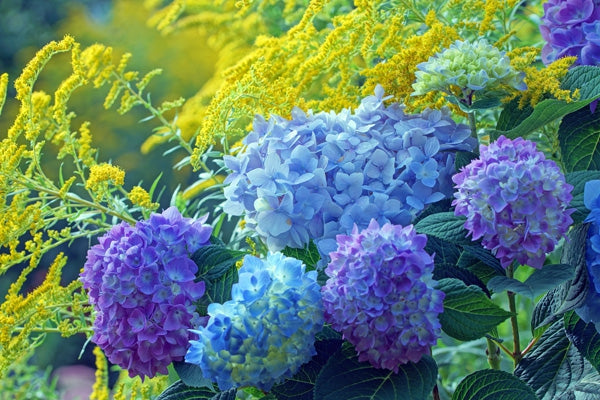An estimated 50 million Americans suffer from “hay fever” or seasonal nasal allergies. Pollen is one of the most common triggers of seasonal allergies, with tree pollen counts being highest in spring, grasses in summer, and weeds (such as ragweed) in the fall. Symptoms of seasonal allergies include runny nose, congestion, nasal itching, sneezing, and red, watery eyes. Close to half of the patients who experience said symptoms will try to remedy them with a natural treatment. Research suggests antioxidant nutrients such as Vitamin C, quercetin and citrus bioflavonoids may help modulate inflammation, stabilize mast cells and reduce histamine levels associated with allergic rhinitis, while bromelain may reduce edema and inflammation of the mucous membranes.
Vitamin C
Due to its antioxidant properties, Vitamin C is believed to protect the airways against the effects of allergens and other irritants that increase oxidative stress.
Vitamin C also appears to support normal histamine levels. People with low levels of plasma vitamin C seem to have higher levels of histamine, and patients who were given 2 grams of ascorbic acid daily for 2 weeks showed a 38 percent reduction in blood histamine. (1)
A 2013 study in Allergy, Asthma & Immunology Research concluded that Vitamin C also exerts an anti-inflammatory effect by suppressing macrophage secretion of superoxide anions and NF-kB activation. This observation stemmed from evaluation of the vitamin C intake of over 4,500 Korean children who were given a food questionnaire in relation to the severity of allergic rhinitis symptoms. The group of children with increased vitamin C consumption had fewer allergic rhinitis symptoms, despite the lack of a difference in total serum IgE level or allergen sensitization. (2)
In a randomized controlled trial of sixty patients with perennial allergic rhinitis, vitamin C decreased allergic rhinitis symptoms in 74% of the patients. (3) Supplementation with 1-2 grams of vitamin C has also decreased the spasm of bronchial passages caused by histamine in patients with allergic rhinitis. (4)
Citrus Bioflavonoids
Flavonoids appear to work synergistically with vitamin C in order to maintain blood capillary health and protect against oxidative damage, which may help reduce edema and inflammation related to allergies.
In addition, animal studies suggest citrus bioflavonoids may actually help reduce IgE-mediated allergic immune responses. (5) In a clinical trial of patients suffering from seasonal allergic rhinitis to cedar pollen, the flavonoids of a Citrus unshiu (Satsuma) extract showed potent inhibitory activity against IgE-mediated histmine release from basophils. (6) These results suggest that proper intake of citrus bioflavonoids could be helpful in managing seasonal allergic rhinitis to pollen.
Quercetin
Quercetin is a flavonoid abundant in the skins of onions and apples, which has the ability to stabilize mast cells, preventing the release of histamine. It also appears to exert anti-inflammatory effects via inhibition of leukotrienes and prostaglandins. The typical North American diet provides 5 to 40 mg of quercetin per day, while a high fruit and vegetable diet provides 200-500 mg per day. Allergy sufferers may benefit from adding more fruits and vegetables to their diet to increase their intake of quercetin.
In vitro studies measured the effects of quercetin on nasal epithelial cells of patients with allergic rhinitis to evaluate histamine release, and found it inhibited antigen-stimulated histamine release from these cells by 46 to 96%. (7) Animal studies suggest quercetin may also reduce inflammation and airway hyper-responsiveness, which can be associate with allergy. (8, 9)
Bromelain
Bromelain is a fibrinolytic enzyme derived from the stem of the pineapple plant, known for reducing edema and mucosal inflammation. Preliminary studies in patients with chronic sinusitis resulted in improved symptom scores and quality of life measures in those taking bromelain. (10) Bromelain is generally well tolerated, but should be avoided by those with known pineapple allergy.
Lifestyle measures
In conjunction with natural or conventional treatments to lower histamine and modulate inflammation, saline nasal irrigation has been shown to be beneficial in reducing allergy symptoms. (11)
Lifestyle measures to help reduce allergen exposure include closing windows, using an air conditioner with a HEPA filter attachment, and limiting time spent outdoors during high-pollen days. Wearing sunglasses and a hat helps keep pollen out of eyes and hair, and showering before bed prevents transfer to bedding, which should be washed in hot soapy water weekly. Experts also recommend limiting close contact with pets that spend time outdoors. (12)
Finally, eating a rainbow of brightly colored fruits and vegetables can increase the amount of quercetin and a wide variety of flavonoids in the diet. A minimum of five servings of each is recommended, though seven to ten are ideal.
It is beneficial to enjoy at least one serving of vegetables with every meal and two servings of fruit per day. Some ideas for adding this into the diet include: a breakfast egg scramble with spinach and a side of red berries; an apple with nut butter as a snack; or a healthy protein, like chicken or fish, at dinner with a baked sweet potato and roasted vegetables. Smoothies are a great and easy way to get an extra serving of greens and fruits and can be made as a snack or meal replacement if enough protein is added.
DISCLAIMER: The information contained in this article is for informational purposes only, and is not intended to be a substitute for professional medical advice, diagnosis, or treatment. Always seek the advice of your physician or other qualified health provider with any questions you may have regarding a medical condition.
References:
1. Johnston CS et al. Antihistamine effect of supplemental ascorbic acid and neutrophil chemotaxis. J Am Coll Nutr 1992 Apr; 11(2): 172-6.
2. Ju-Hee Seo, et al. Association of antioxidants with allergic rhinitis in children from Seoul. Allergy Asthma Immunol Res. 2013 Mar; 5(2): 81–87.
3. Podoshin L., Gertner R, and M. Fradis. Treatment of Perennial Allergic Rhinos with Ascorbic Acid Solution. Ear-Nose-Throat J.; January 1991; 70(1); p. 54-5.
4. Bucca C, Rolla G, Oliva A, Farina J-C. Effect of vitamin C on histamine bronchial responsiveness of patients with allergic rhinitis. Ann Allergy 1990;65:311–4.
5. Park SH, Park EK, Kim DH. Passive cutaneous anaphylaxis-inhibitory activity of flavanones from Citrus unshiu and Poncirus trifoliata. Planta Med. 2005 Jan;71(1):24-7.
6. Kobayashi S, Tanabe S. Evaluation of the anti-allergic activity of Citrus unshiu using rat basophilic leukemia RBL-2H3 cells as well as basophils of patients with seasonal allergic rhinitis to pollen. Int J Mol Med. 2006 Mar;17(3):511-5.
7. Otsuka H, Inaba M, Fujikura T, et al. Histochemical and functional characteristics of metachromatic cells in the nasal epithelium in allergic rhinitis: studies of nasal scrapings and their dispersed cells. J Allergy Clin Immunol 1995; 96 (4):528-36.
8. Rotelli AE, Guardia T, Juarez AO, et al. Comparative study of flavonoids in experimental models of inflammation. Pharmacol Res 2003 Dec;48(6):601-6.
9. Ko WC, Shih CM, Chen MC, et al. Suppressive effects of 3-O-methylquercetin on ovalbumin-induced airway hyperresponsiveness. Planta Med. 2004 Dec;70(12):1123-7.
10. Buttner L et al. Efficacy and tolerability of bromelain in patients with chronic rhinosinusitis – a pilot study. B-ENT. 2013; 9(3): 217-25.
11. Papsin B, McTavish A. Saline nasal irrigation: its role as an adjunct treatment. Can Fam Physician 2003;49:168-73
12. Allergy Facts and Figures. Asthma and Allergy Foundation of America. AAFA Web site. http://www.aafa.org/page/pollen-allergy.aspx, accessed March 16, 2017.






